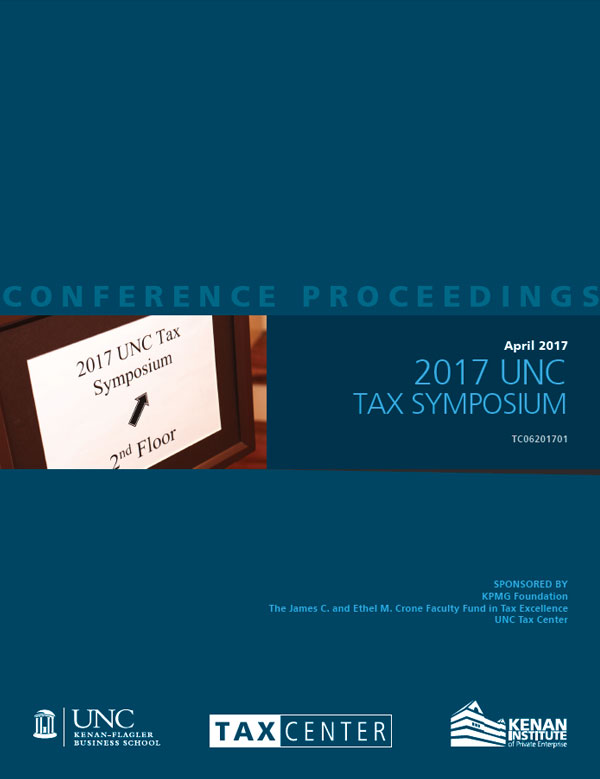
Borderline Tax Planning
We analyze large-scale establishment-level data to evaluate how county-level commercial property taxes influence business location decisions. We find that the propensity to favor lower-taxed counties is increasing in the tax differential between adjacent counties, and is decreasing in the distance to the border.
Join the UNC Tax Center on Wednesday, Dec. 8, 2021, from 11 a.m. to 12:40 p.m. EST for Demystifying Blockchain & Cryptocurrency. This webinar, which provides 2.0 CPE credits, is the fourth in a series of tax policy webcasts jointly hosted by the Kenan Institute-affiliated UNC Tax Center and the AICPA.

The Big Price Tag to Build Back Better
The Biden administration has proposed several multi-trillion dollar initiatives to invest more federal dollars in infrastructure, education, healthcare and more. However, these big ticket items come at a significant cost, which the president hopes to cover through tax reforms. Proposed changes could affect individual income taxes for high earners, corporate taxes, international taxes and capital gains – and needless to say, the proposed reforms have drawn both strong critics and supporters. As dizzying negotiations and politicking continue in Washington, two of our experts unpack the proposed tax changes and their potential impacts on businesses and households in this week’s Kenan Insight.
As we approach the one-year mark of state-issued stay-at-home orders, the short- and long-term impact of the global COVID-19 pandemic on state coffers is still being assessed. With businesses forced to close and unemployment at near-record levels, state policymakers are scrambling to find ways to make up for lost tax revenue. In this Kenan Insight, we look at both the challenges and opportunities for balancing state budgets in light of this new economic reality.

2017 UNC Tax Symposium
This April, the UNC Tax Center once again welcomed guests from across the country and around the world to Chapel Hill for our 20th Annual UNC Tax Symposium. The event was a great success, with participants ranging from academic researchers in accounting, finance, law and economics to policymakers and practitioners with an interest in evidence-based tax research.
Many online retail firms (e-tailers) do not collect sales tax from the majority of their customers, providing these firms a potential competitive advantage over traditional retailers. We examine stock market returns and analysts’ sales forecast revisions surrounding federal legislative proposals, such as the Marketplace Fairness Act, that could erode this alleged competitive advantage for e-tailers. Following events that indicated an increased likelihood of federal sales tax legislation, we find negative abnormal stock returns for e-tail firms relative to traditional retail firms. We also find that analysts forecast a future reduction in sales revenue for e-tailers. These findings imply the existence of a competitive advantage for e-tailers, which advantage will potentially diminish with the enactment of federal sales tax legislation.


